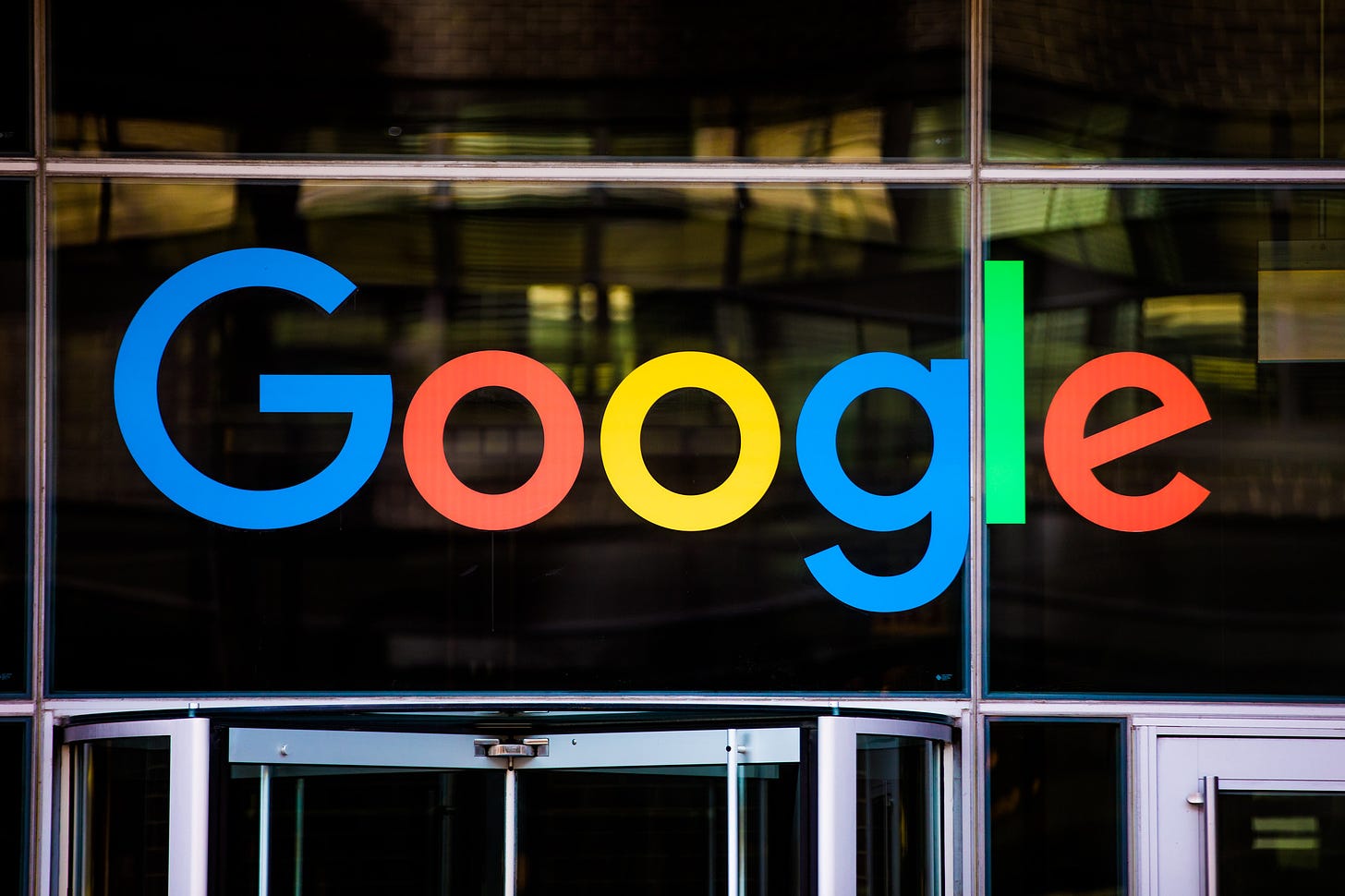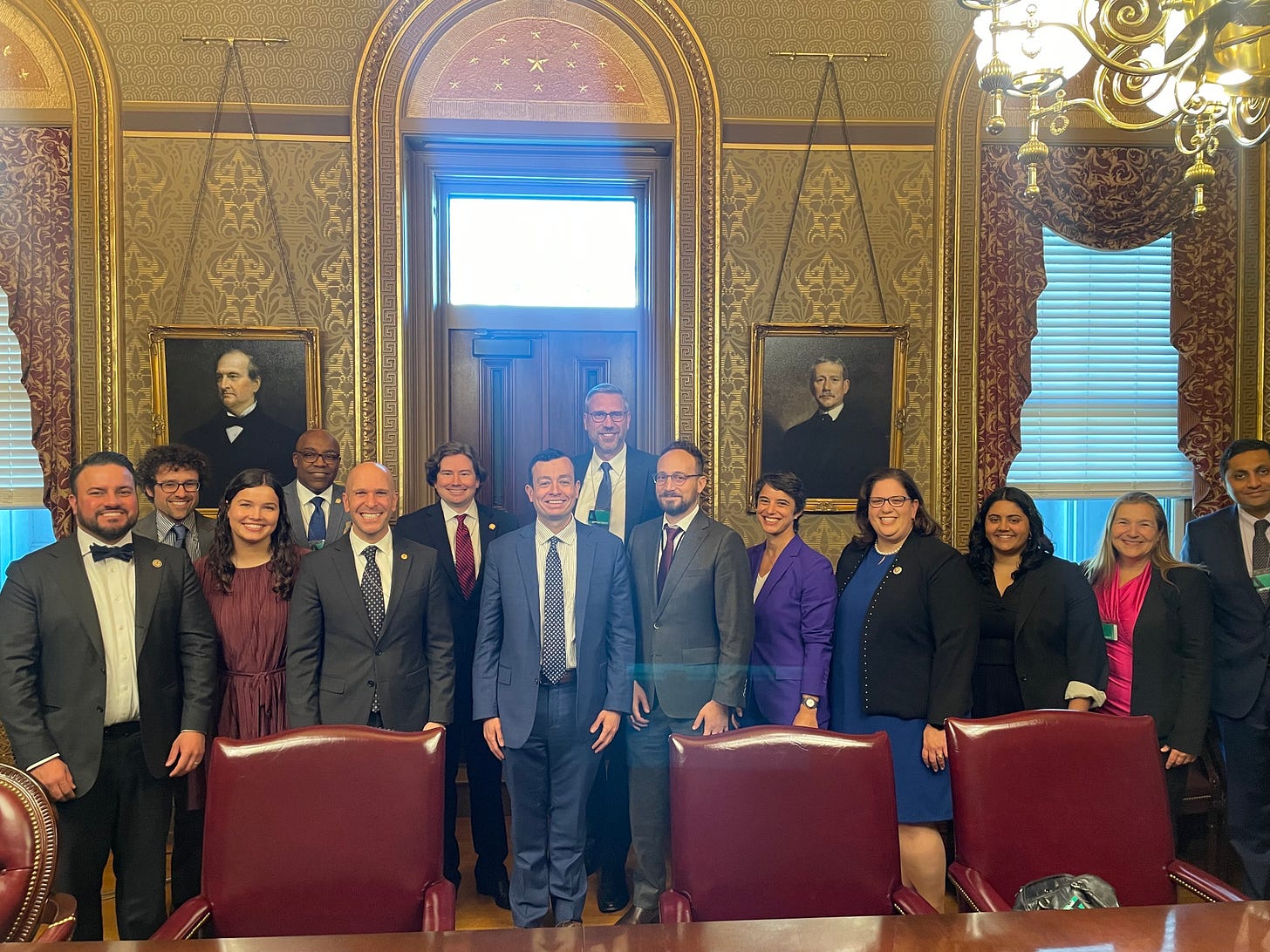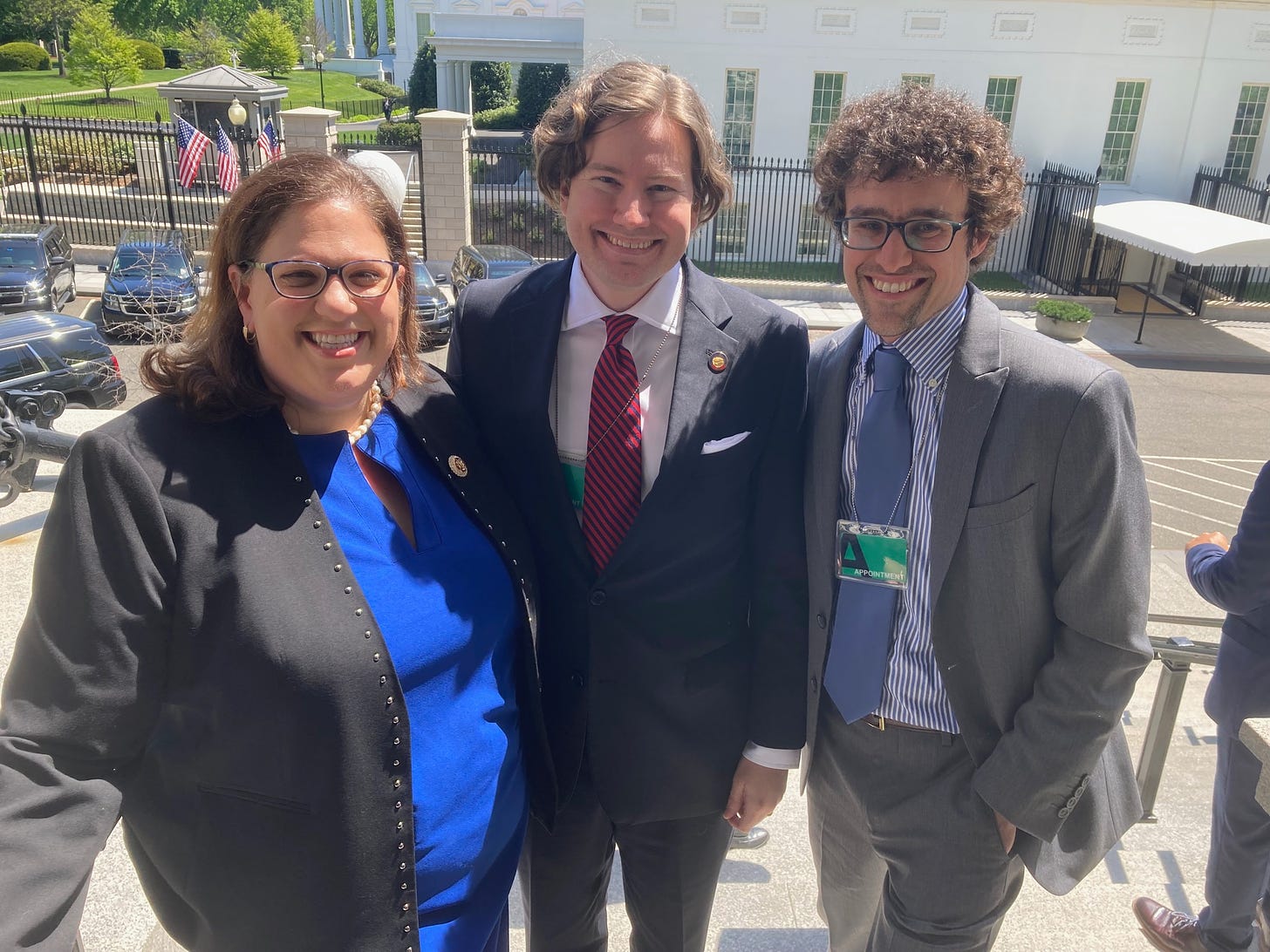
This is Boondoggle, the newsletter about how corporations rip off our states, cities, and communities, and what we can do about it. If you’re not currently a subscriber, please click the green button below to sign up. Thanks!
New York recently became the first state in the U.S. to approve a tax break for news publications to hire working journalists. It will provide eligible news outlets with a 50 percent refundable credit for the first $50,000 of a journalist’s salary, up to a total of $300,000 per outlet.
Lots of state and federal legislators have proposed similar ideas in the past as a response to the dramatic loss of local journalism jobs in recent decades, but this is the first one to get over the line and into law. It’s certainly true that local media outlets have been hemorrhaging staff, and I think the crafters of this legislation have their hearts in the right place.
That said, while creating tax credits for hiring local journalists is fine as far as it goes, it’s not an adequate solution to underlying issues causing our national local news crisis.
First, I certainly worry about local journalism outlets becoming permanent wards of the state, surviving thanks to funds provided by the very government they’re supposed to critically cover, even assuming those funds are adequate, which I don’t think they will be. I know there are outlets that exist that way just fine — NPR and PBS among them — but I’m not sure it’s sustainable as a mass funding model to have news outlets dependent on the never-ending flow of public dollars.
But far, far more importantly, tax credits don’t fix the fundamental problem with the journalism market: To truly get at that, you have to go beyond giving money to media outlets, and instead follow the money that used to sustain those outlets, which leads you straight to the doorstep of Big Tech generally, and Google, most specifically. Without wrenching away the power of Google, Facebook, and others to dominate the world of online advertising and profit from the work of journalists, you’re not fixing the market structure that’s hurting journalism outlets. Democracy doesn’t die in darkness, as the Washington Post’s saying goes, but in the bowels of a Google or Facebook algorithm.
I’ve written about this before, so go read that for a longer re-cap, but to quickly summarize: Big tech firms, most prominently Google and Facebook, have inserted themselves between news readers and advertisers, profiting off the ad spending that used to sustain media outlets, and hoovering up ever more data that they can sell to advertisers, leaving media outlets out in the cold. Much of that advertising revenue is made from ads sold against content created by journalists: Google and Facebook aren’t making content themselves, but merely serving up snippets and slices of what journalists created, while sucking up most of the money.
If it was ever the case that Big Tech was directing useful traffic to media outlets — and I’m skeptical that traffic was ever worth much, since those readers weren’t coming in based on brand loyalty — the model in tech is to increasingly build what are known as “walled gardens,” or sites explicitly designed for users to not depart for other websites. After all, more time spent on Google by a user means more revenue for Google — why would it try to send you away?
That’s why studies have shown that Google will degrade its own search results in the name of keeping users within the Google ecosystem, providing a worse product because doing so means increased revenue for Google itself. You see the same phenomenon in news, with Google’s own answers to search queries — short and often inaccurate as they are — increasingly favored over simply sending a searcher to a media outlet. In fact, more than half of news searches on Google do not result in a click away from Google — and I’d expect that number to keep climbing.
As the editorial board of the Santa Cruz Sentinel recently wrote, “Google made more than $300 billion last year, most of it from advertising it sells using content it did not create or pay for. In its early days, Google sent lots of traffic for news publishers, but in recent years not so much as it seeks to keep people on its site where Google makes the money. This is why Google’s revenue keeps growing while news publishers — and not just print newspapers — can barely keep the lights on.”
Indeed, Google and Facebook are, to my eye and informed by my years working in newsrooms and watching the digital transition firsthand, stealing content and the advertising money that goes along with it, profiting off the hardworking journalists who make pennies compared to your average Google engineer.
A study late last year found that under a fair compensation system, Google would owe news publishers $10-12 billion per year for ads sold against news content, while Facebook would owe another nearly $2 billion. Yes, that’s billion, with a b. As the study’s authors wrote in a corresponding op-ed:
Our conservative estimate is that Facebook and Google should pay US news outlets roughly $14 billion annually to use their content. Our study shows that Facebook owes publishers $1.9 billion a year while Google owes $10-12 billion. We also include a detailed explanation of our methodology and invite others to build on and refine it. […]
At present, Google and Facebook dominate US digital advertising markets, allowing the two major platforms to siphon virtually all of the economic value created by online news content. Moreover, as the US Department of Justice and 38 states’ attorneys general argue in their ongoing antitrust lawsuit against Google, the company was able to maintain its dominant position in digital advertising markets by monopolizing key technologies.
Our findings underscore the glaring disparity between what Google and Facebook currently pay news publishers and what they would pay if they were not powerful monopolies. Our approach to determining fairer compensation is simple, transparent, and compelling.
Indeed, the point about digital advertising is an important one, and the next key step in the story. Google has monopolized digital advertising markets, as it’s one of the only major players selling the technology on both the buying and selling sides, as well as a major player in the market, selling advertising space on its own content properties, such as YouTube. All of this power allows Google to skim money off the top and provide preferential treatment to its own sites. There’s a reason the Department of Justice and state attorneys general are suing Google for monopolizing digital ad markets.
Without addressing these two issues — the ability of Big Tech to insert itself between publications and their readers and derive all the profits without doing the work, and Google’s monopolization of the digital advertising market — you can’t actually fix what’s broken in journalism. Supply-side tax credits to juice hiring will always be a mere band-aid. (I’m also leaving aside discussion of private equity firms buying up small news publishers and stripping them for parts, which is very much a significant problem on its own requiring its own solutions that are beyond the scope of this piece.)
Fortunately, legislators at both the state (in California, Illinois, and New York) and federal level have proposed legislation that would enable news publishers to bargain with Google, Facebook, and others for a fair slice of the revenue tech firms make selling ads against news content.
That, along with breaking up Google’s ad market monopoly, would make a real difference. And that’s why Google and Facebook throw a fit whenever such legislation looks like it might advance. But that lends even more urgency to the project: Saving journalism requires taking on Big Tech, full stop.
UPDATE: I joined a great group of state legislators and enforcers for meetings at the White House and Federal Trade Commission this week. The topic of discussion was how policymakers at all levels of government can eliminate junk fees, those pervasive “convenience” and “processing” fees I’ve written about here before. This is a great example of leaders at the state and federal level working toward a common goal to save folks some money.
Reminder: You can check out EndJunkFees.org to see how state-level bans on junk fees are progressing, read research and polling, and learn how to get legislation introduced in your own state.
UPDATE II: The Federal Trade Commission voted this week to ban non-compete agreements, across the board, for everyone. This is huge news for workers and the broader economy, freeing up folks to accept higher-paying work when they find it or leave a job in order to start their own business. But, as I explained here, state lawmakers have important work to do backfilling the FTC’s rule to cover companies over which the FTC does not have jurisdiction, to protect against a future administration or court striking down the rule, and to provide for state-based enforcement power.
UPDATE III: I recently explained here why the proposed acquisition of Iowa Fertilizer Company by Koch Industries would be bad news for the fertilizer industry and farmers. Last week, Federal Trade Commission Chair Lina Khan visited Iowa to hear about the potential impacts of the deal directly from concerned farmers and legislators.
UPDATE IV: The Department of Transportation recently announced a new partnership with state attorneys general to expedite cases involving unfair and deceptive practices by airlines. This is a good, albeit indirect, effort to address the problem of federal preemption of state consumer protection laws when it comes to airlines, which I wrote about here.
Thanks for reading this edition of Boondoggle. If you liked it, please take a moment to click the little heart under the headline or below. And forward it to friends, family, or neighbors using the green buttons. Every click and share really helps.
If you don’t subscribe already and you’d like to sign up, just click below.
Thanks again!
— Pat Garofalo




